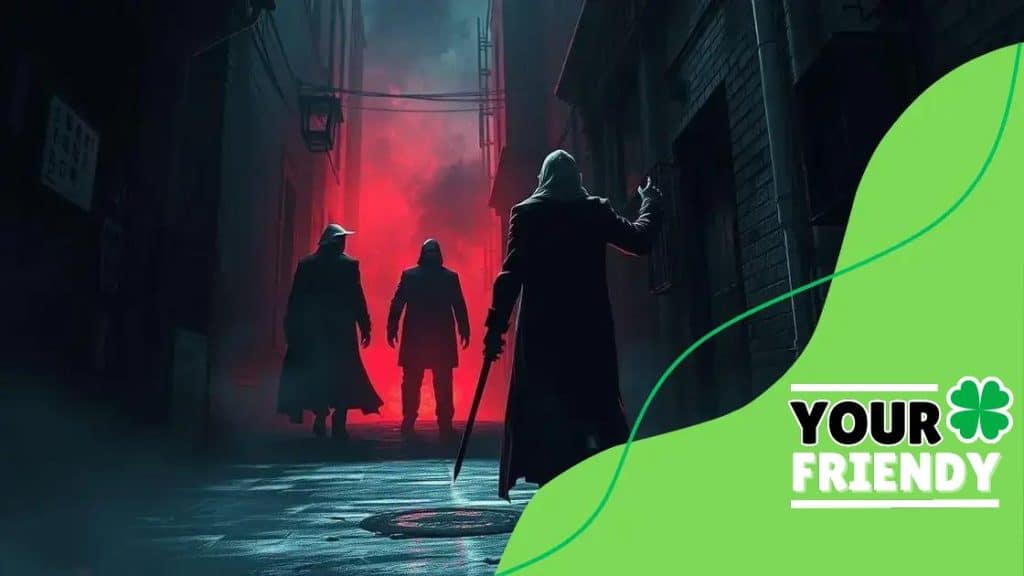Stories of revenge and justice: exploring motives and outcomes

Anúncios
Revenge narratives explore human emotions and societal implications, revealing that while the desire for vengeance is natural, it often leads to destructive outcomes, emphasizing lessons about forgiveness and the importance of justice.
Stories of revenge and justice have captivated audiences for centuries. They delve into the depths of human emotion, posing compelling questions about morality, ethics, and the consequences of our actions. What drives people to seek vengeance, and what are the repercussions? Let’s explore these thought-provoking narratives together.
Anúncios
Understanding the psychology of revenge
Understanding the psychology of revenge is vital to grasp why individuals may feel compelled to seek vengeance. This phenomenon is rooted in deep emotional responses that often lead to an intricate cycle of behavior. The desire for revenge can stem from various psychological motives, including anger, betrayal, and a need for justice.
Emotional Drivers Behind Revenge
Many who seek revenge do so because they feel a profound sense of injustice. When someone experiences harm, their emotional reaction can trigger thoughts of retaliation. This need for balance often overshadows the potential consequences of such actions.
- Anger often propels thoughts of revenge.
- Betrayal can create a strong urge to retaliate.
- The need for justice can distort moral reasoning.
Additionally, people may want to regain a sense of power or control over their lives that was lost due to the perceived wrongdoing. The cycle of revenge may provide a temporary sense of relief, yet it usually leads to further emotional turmoil.
Anúncios
Philosophical Perspectives and Modern Insights
Throughout history, philosophers have debated the morality of revenge. Some argue that it’s a natural response, while others see it as destructive. In contemporary psychology, research reveals that revenge can lead to long-term psychological distress and dissatisfaction. Understanding these aspects is essential when examining the broader concept of justice versus revenge.
Some modern psychologists suggest that breaking the cycle of revenge can promote healing and personal growth. Instead of seeking retaliation, individuals are encouraged to focus on forgiveness and moving forward. This shift in perspective helps mitigate the negative psychological impacts associated with the desire for vengeance.
Famous historical tales of revenge
Famous historical tales of revenge reveal how deeply woven this theme is in our collective consciousness. Across different cultures and eras, stories of vengeance have echoed through time, highlighting both the human capacity for justice and for destruction.
The Tale of Hamlet
One of the most renowned stories of revenge is Shakespeare’s Hamlet. The play depicts Prince Hamlet’s quest to avenge his father’s murder. His journey is filled with doubt, madness, and moral quandaries that spark discussions about the repercussions of vengeance.
- Hamlet struggles with the morality of revenge.
- The ghost of his father plays a crucial role in his motivation.
- Ultimately, the pursuit of revenge leads to tragedy.
This tale captures the essence of how revenge can spiral out of control, affecting not just the avenger but everyone around them.
The Samurai Code
In Japan, the concept of revenge is deeply embedded in the samurai code known as Bushido. Samurai were expected to avenge wrongs against their families or their honor. This code exemplified loyalty and the duty to avenge dishonor, often leading to cycles of violence.
The story of 47 Ronin is a famous example. After their master was wronged, these noble samurai plotted revenge, showcasing the complexities of loyalty and honor in the act of retaliation.
The French Revolution
During the French Revolution, tales of revenge played out on the streets of Paris. Many nobles faced the wrath of commoners seeking justice for years of oppression. The guillotine became a symbol of retribution as the revolutionaries executed those seen as enemies of the state.
This historical context illustrates how collective vengeance can lead to profound social change, yet it also raises questions about morality and justice.
Modern interpretations in literature and film

Modern interpretations in literature and film have reimagined the theme of revenge, bringing fresh perspectives to age-old narratives. These adaptations often explore complex motivations and the consequences that arise from seeking vengeance.
Contemporary Literature
In today’s novels, revenge is frequently portrayed not just as a simple desire for retribution but as a catalyst for character development. Authors delve into the psychological impact of revenge on both the perpetrator and the victim.
- Books like “Gone Girl” showcase intricate plots where revenge leads to unexpected twists.
- Many contemporary stories question the morality of revenge.
- Character-driven narratives illuminate the human condition behind these motives.
This shift in literature invites readers to empathize with characters who seek revenge, encouraging a deeper understanding of their struggles.
Film Adaptations
Films have also utilized the revenge theme to great effect. Movies like “Oldboy” and “Kill Bill” present revenge as a powerful and often destructive force. The visual storytelling in cinema allows audiences to experience the emotional highs and lows that accompany these actions.
These films dive into themes such as obsession and the cyclical nature of vengeance. Characters often find themselves on a path where the quest for revenge consumes them entirely, leading to tragic outcomes.
TV Shows Exploring Revenge
Television series like “Revenge” take a deep dive into the complexities surrounding vengeance in a modern context. The show portrays a calculated approach to revenge, highlighting the planning and emotional toll involved.
As viewers follow the characters’ journeys, they are faced with questions about justice, morality, and the impact of past wrongs. This engagement fosters a conversation around the implications of revenge in our own lives.
The impact of justice on society
The impact of justice on society is a complex topic that touches everyone. Justice shapes how communities function and influences individual behavior. When justice is served, it creates a sense of security and trust within a society.
Social Cohesion and Stability
When a society sees justice being upheld, it fosters a stronger community bond. People feel safer knowing that laws protect their rights. This sense of security can lead to increased community engagement and cooperation.
- Trust in legal systems promotes social order.
- Communities thrive when individuals feel safe.
- Justice can lead to better relationships among community members.
However, when justice is perceived as lacking or unfair, it can lead to unrest and division. People may feel compelled to take matters into their own hands, leading to cycles of violence.
The Role of Restorative Justice
Restorative justice is an approach that focuses on healing rather than punishment. This method involves all parties affected by a crime and encourages dialogue and understanding.
By including victims, offenders, and the community, restorative justice seeks to repair harm caused by wrongdoing. This approach can foster empathy and promote healing, ultimately strengthening societal ties.
Long-Term Effects of Justice
Justice also has long-term effects on societal structures. A fair and effective justice system plays a crucial role in reducing crime rates. When individuals believe in the justice system, they are less likely to engage in criminal behavior.
Additionally, societies that prioritize justice often experience more peace and prosperity. This continued focus on fairness contributes to overall well-being and stability.
Lessons learned from revenge narratives
Lessons learned from revenge narratives provide valuable insights into human behavior and societal constructs. These stories often serve as mirrors, reflecting how individuals deal with conflict and the consequences of their actions.
Understanding the Consequences
Many revenge narratives illustrate that the pursuit of vengeance can lead to destructive outcomes. Characters may achieve their revenge but often face adverse effects, such as loss, trauma, or the perpetuation of violence.
- Vengeance can create cycles of retaliation.
- The desire for revenge often blinds individuals to the consequences.
- Many characters pay a high price for their actions.
This understanding encourages readers to consider the real-life implications of revenge and the importance of seeking resolution through healthier means.
The Importance of Forgiveness
Revenge narratives often raise the question of forgiveness. While characters may initially seek revenge, many eventually realize that forgiveness can lead to personal growth and healing.
Learning to forgive not only benefits the victim but also grants the perpetrator peace. This theme emphasizes that letting go of grudges can be more powerful than seeking revenge.
Reflection on Human Nature
These stories also offer reflections on human nature. They reveal our capacity for deep emotions, such as anger, betrayal, and empathy. By examining the motivations behind the characters’ actions, readers can gain insights into their own feelings and behaviors.
This introspection encourages individuals to evaluate their responses to conflict and to consider alternatives to revenge, such as communication and understanding.
In conclusion, revenge narratives offer powerful insights into human emotions and societal dynamics. They remind us that while the desire for revenge is natural, it often leads to negative outcomes for both individuals and communities. Themes of forgiveness and understanding can lead to healthier resolutions and personal growth. By reflecting on these lessons, we can choose paths that foster empathy and connection rather than conflict. Embracing these lessons can help create a society that values justice and healing.
FAQ – Frequently Asked Questions about Revenge Narratives
What are common themes in revenge narratives?
Common themes include the consequences of vengeance, the struggle for justice, and the importance of forgiveness and personal growth.
How can revenge stories impact society?
Revenge stories can reflect societal values and highlight the consequences of conflicts, encouraging discussions about justice and morality.
What lessons can we learn from tales of revenge?
Tales of revenge teach us about the cyclical nature of violence and the potential healing power of forgiveness.
How do modern interpretations of revenge differ from classic tales?
Modern interpretations often focus more on psychological depth and moral complexities, while classic tales may emphasize straightforward revenge plots.





